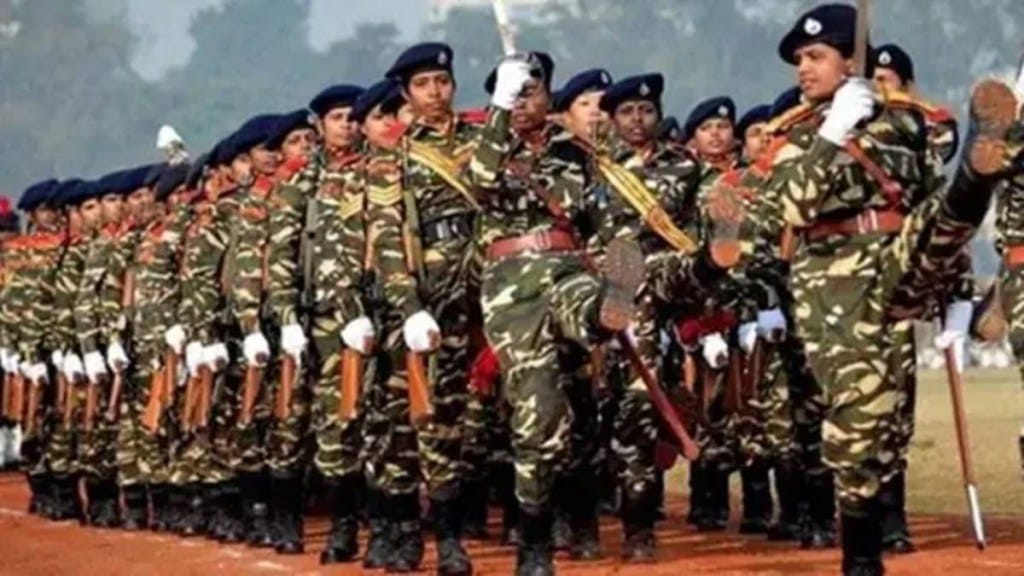The Agniveer scheme, also known as the Agnipath scheme, was announced by the Indian government in June 2022. This scheme aimed to modernise and streamline the recruitment process in the Indian armed forces by introducing a short-term service model.
However, it has faced significant criticism and controversy since its inception, culminating in a heated debate between political figures such as Congress leader Rahul Gandhi and Defence Minister Rajnath Singh. This explainer will delve into the details of the Agniveer scheme, the criticisms it has faced, and the specifics of the recent compensation controversy.
What is the Agniveer Scheme?
The Agniveer scheme is a recruitment initiative for the Indian Army, Navy, and Air Force. Key features of the scheme include:
– Short-term Service: Recruits, known as Agniveers, serve for four years, with a possibility for 25% of them to be retained for an additional 15 years.
– Eligibility: The scheme targets young individuals aged 17.5 to 21 years.
– Training and Employment: Agniveers undergo rigorous training and serve in various capacities within the armed forces.
– Benefits: Upon completion of their service, Agniveers receive a financial package, including a lump sum payment and other benefits. They also acquire skills and experience that are valuable for future employment.
– Permanent Enrollment: A certain percentage of Agniveers may be absorbed into the regular armed forces based on performance and military needs.
– Pension and Gratuity: Unlike traditional recruitment, Agniveers are not entitled to a pension but receive a significant severance package at the end of their service.
Criticisms of the Agniveer Scheme
The Agniveer scheme has faced severe criticism since its launch. Key concerns include:
– Job Security: The four-year tenure is considered too short to provide long-term job security, leaving recruits uncertain about their future after service ends.
– Pension: The absence of a pension is a significant drawback for those seeking long-term financial stability.
– Skill Utilisation: There are concerns about the limited scope for utilising the skills and training received during the four-year tenure in civilian jobs, which may not match the level of training provided by the armed forces.
– Morale and Effectiveness: Some defence experts worry that a short-term service model could impact the overall effectiveness and professionalism of the armed forces, as well as the morale of the soldiers.
– Youth Unemployment: The scheme might exacerbate the problem of youth unemployment by adding many individuals to the job market every year after their tenure ends.
Protests and Opposition
Following the announcement of the Agniveer scheme, there were widespread protests across states like Bihar and Uttar Pradesh. Opposition leaders, including Rahul Gandhi, Akhilesh Yadav, and Arvind Kejriwal, criticised the scheme for jeopardising many youths’ futures and diminishing the forces’ fighting spirit. The scheme became a key electoral point in the lead-up to the 2024 Lok Sabha elections.
The Agniveer Compensation Controversy
The controversy was reignited following the death of 23-year-old Agniveer Ajay Kumar, who died in the line of duty due to a land mine explosion in Jammu and Kashmir on January 18. Congress leader Rahul Gandhi accused Defence Minister Rajnath Singh of lying about the compensation for Kumar’s family. Singh had announced that the government provides Rs 1 crore compensation to families of Agniveers who die in the line of duty. Gandhi claimed that Kumar’s father had not received this compensation.
Government and Army Response
Defence Minister Rajnath Singh refuted Gandhi’s claims, emphasising that the Agnipath scheme is similar to recruitment schemes in countries like the US and UK and had undergone thorough consultation before implementation. The Indian Army clarified that Ajay Kumar’s family had already received Rs 98.39 lakh out of the total Rs 1.65 crore due, with the remaining Rs 67 lakh to be paid after final account settlement and police verification.
The Debate over Compensation
The controversy further deepened as netizens and political figures debated whether the amount received by Kumar’s family constituted government compensation or was merely an insurance payout. An analysis revealed that the Rs 98.39 lakh included Rs 50 lakhs from the SBI as part of a group insurance policy and Rs 48 lakhs from the Army Group Insurance.
Critics argued that insurance payouts should not be considered government compensation, highlighting a perceived disparity between the promises made and the actual financial support provided. This distinction between compensation and insurance payouts became a focal point of the controversy, raising questions about the government’s commitment to adequately supporting fallen soldiers’ families.
What’s Next?
The Agniveer scheme, intended as a modern recruitment initiative for the Indian armed forces, has been controversial since its inception. Criticisms regarding job security, pension benefits, and the overall effectiveness of the armed forces have fuelled widespread protests and political debate. The recent compensation controversy involving Agniveer Ajay Kumar has further highlighted the scheme’s contentious nature, underscoring the need for clear communication and adequate support for the families of fallen soldiers. As the debate continues, the government’s handling of the Agniveer scheme will be scrutinised.

